It is December first at the 45th parallel. The sun has wandered off in a fugue like an absent father; as if he were a drifting barfly, he shows his face only intermittently, here and there — one hasn't a clue when he'll turn up. And when he does, you hardly think to welcome him or dwell long on his arrival — you know he'll give you the "Irish goodbye" as quickly as he came. And again as he goes, the earth will be squeezed by the dreamlike gravity of the dark overcast. The overcast — that thick blanket offered by God as a comfort during late autumn in the North Country. Down the road, piles of corn stand dumbly at rest, and rough, black-toothed characters quaff liquor as they rev the engines of their snowmobiles on dry yard dirt, anxiously looking up at the sky for a snowstorm that has not yet arrived. The village tavern is being remodeled; cigarette smoke hangs over the pallet-loads of lumber at the side of the street, where cars swerve a little too madly — it seems the entire town is half-in-the-bag, every porchside is cackling in a stupor as the early sunsets fade. The scene is vaguely Siberian.
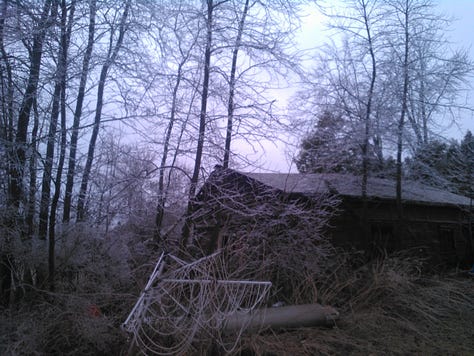
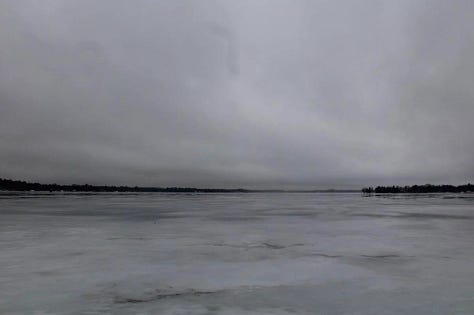

Late autumn in the north is a listless time, a season during which the borders between sleep and wakefulness become muddied. It is a time when it seems nothing can be achieved. For the farmers and the village-men, the harvest is over and the firewood stores appear sufficient. The little tourist shops in the mountains are shuddered; the hamlet-dweller hardly thinks to go to the bigger towns to shop, having already secured his winter stores, wrapped himself in his wools, and lit his candle. The deerhunter snoozes in his hunting blind among the firs. It is a season for retiring to one's war room; a time when a man ought to take his sherry against a backdrop of maps pinned to the wall. All of his half-read books are splayed out on his desk — a season when a man cannot finish a thought because he is walking in a waking snooze as the hail pelts the windows. Outside, the seed-heads of the reeds flail like drunkards, all dwarfed by the wandering branches of leafless, broomlike birches, towering above the deathly gloom of swamped fields and foggy earth. Man's woolen nightcap hangs onto his skull, draped over his madcap hair and all of its mammallian grease — its tassle stays motionless in the sinking orange glow of the sun's daily death. The line between dreaming and waking is meaningless in such a season.
“What do you think of the way men live?” Asked the half-Inuit, half-Danish explorer Rasmussen to the Greenlandic angakok — a shaman — in 1903. “They live brokenly, mingling all things together; weakly, because they cannot do one thing at a time.”
So saith the man born at the glacier’s bedside along the raven-black seams of dark rock where Greenland’s remote hamlets timidly stand. The angakok were men who exuded the extremism of the polar night and its sister, the polar day. In Greenland it is easier to buy things in bulk — and naturally there, sunlight comes in four-month packages that once opened cannot be closed. By the time they run out, it is another four months until the next package comes. Kaallalit Nunaat is a land where things ought not be mingled togther, where men are free to retain their own metaphysical firmament — that they may not live “brokenly”.
Now, far south of Greenland but nonetheless touched by this season of somber formlessness, I stare out at the winter as a vague threat or a buckish challenge. I leaf through maps within my own mind; as the leaves flew only a month ago, so did ideas, and a harrying madness permeated until the sun absconded and my mind could catch up on sleep. Now, vivid dreams preside over my evening rest. They are heavy, ancient dreams that leave a patina upon the wakeful eye; dreams that obsessively enforce their presence in the mind even as one grips the coffee mug and attempts to leave sleep behind. As if the dream-world were a ship’s deck bustling with hungover seamen untangling snarled lines, reeling them together in great dripping strands to dry, tossed about in the rollicking pluck of the wild water — all of the tributaries of my wandering mind pine to be cleanly led to a single course.

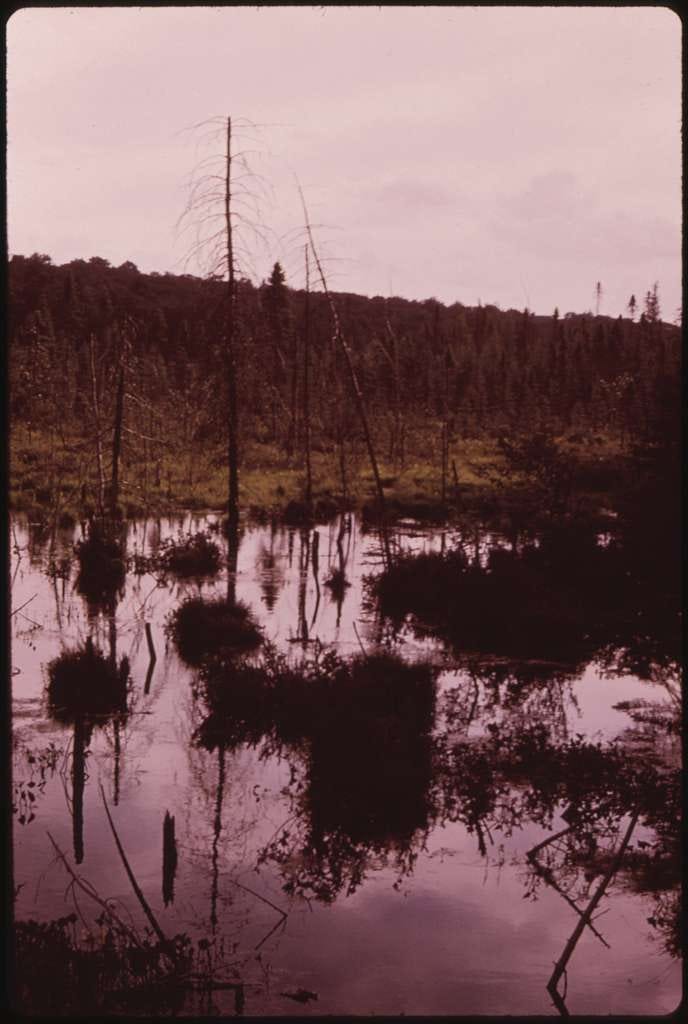
I think of the taste of oversteeped Irish breakfast tea taken with wind and breaking fog as the eye discerns a monolithic spine of stone rising above a haphazard settlement. Dreaming, I know the cabbage is in the crock and indeed though it is still dark, I am wakeful and sharp-eyed already — the kerosene stove presides over a half-dozen faces wrapped in duvets and wool upon a giant mat on the floor. The house is of sod with whalebone arch, of rough construction — a hovel for idealists in remote quadrants of the earth. It’s the sort of place a sturdy and damn-fooled young man could build with the few scraps of cash he could get in exchange for his return ticket home. Through the window, the mass of figures asleep by the glowing stove look like puppies in a snoozing pile. I suddenly remember that I was the one who built the house; and that those inside are my guests, who sleep neatly beside my wife.
At the wharf, it is midnight in spite of the early morning rising at the house of sod and whalebone only ten furlongs hence. Alien figures are pouring out buckets of rotted herring for dogs, yipping and gaunt, and the men take draws of chortling liquid that burns and bites their tongue for them. When they do speak, they speak in churlish drawls. Are they Asians? Eskimos? Irishmen? They call out in some halting, unknown tongue to a barqueload of hooting men, having a gas over some foreign prank. Then, as if by magic they turn to me, speaking brightly, and I understand them completely. Not long after, I am at the cresting wave of a deep and feverish bout of merriment; the air is one of lunacy and extreme bravado, the bravado of seal-hunters and ruined merchants and milk-eyed natives — I am accepting my unexpected welcome as one of them.
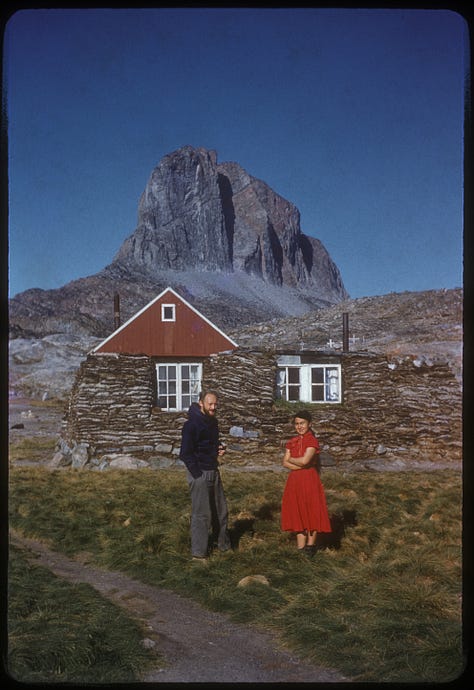
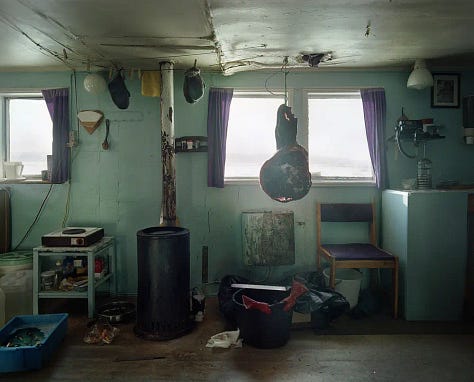
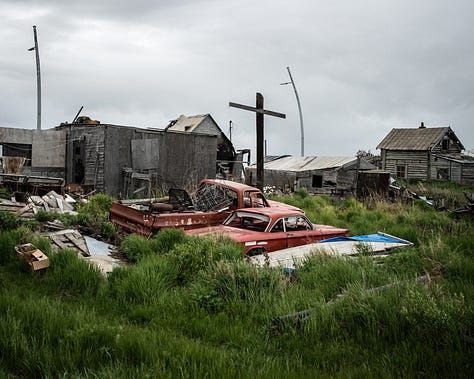
And my wife is with child. Bowls of salted seal meat, whale blubber, rock ptarmigan and wilted seaweed, all arrayed within the humid shanty where fleshy, naked forms cackle. One elder makes commentary on the “sagacity of the beaver” in his chortling patois. Quilts are being distributed, all made for the mayor and his fat old wife, all of them wrapped around the babies — rituals are taking place that I cannot follow. Thank God I can’t keep up, thank God I have no idea what is going on — thank God I am here among these leprechauns of the remote coastline, where no roads go and the seldom-sober boatman is one’s only hope of departing. I leer at the moss hanging over my doorway by the light of midnight sun — or is it noon? — and let out a wild yelp, setting hundreds of dogs into a howling fury. I am dreaming.
But I am not in a dream; I am in New York, far away from the world, hidden at my estate a mere thirteen miles from Canada. I thump the walls of my cottage with an icy finger and find they are real. No dream of Greenlandic shamans nor of Siberian polar night: this is my estate, my seven-hundred square feet of solace, managed as my own castle in a far-flung region of a state known for the city bearing its name. I am a seven-hour drive from that city, up in the deathly husks of cattails and barren trees, where dirt paths have names like "Frontier Road" and "Chemin Du Beaver". The radio is in the drawling French of the Quebecois — a trucker yawns on air in a midnight segment — "j'park mon vieux truck, ouais, ouais, à le maison..." and he trails off. I am taking my eggs with maple syrup, and last night's poutine is wandering up through my arteries and veins, nourishing me for winter's long battle — strengthening me for the first snows and the first clarifying light of winter, where all of the tributaries of my own mind will be brought to a single stream, moving forcefully in a single direction.
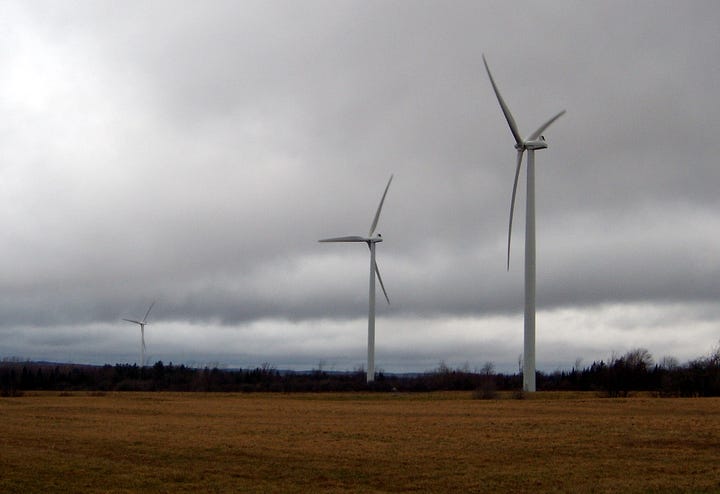
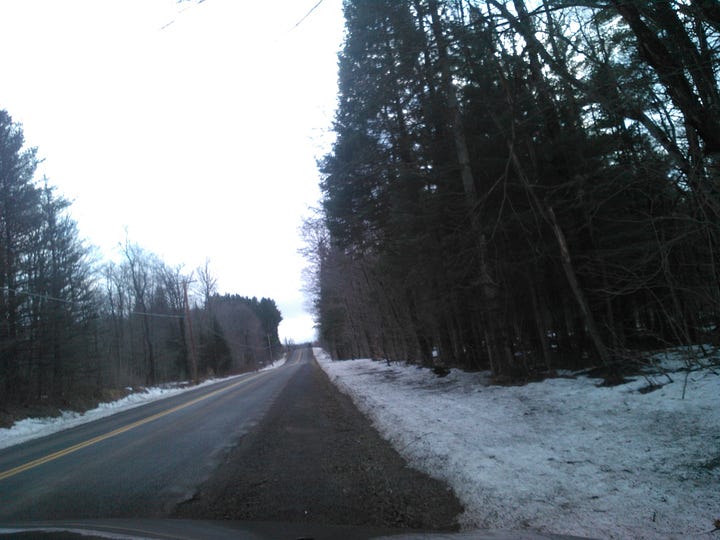
Not only are the walls of my cottage real and definitively not of the dream-world, but this month, they are being paid for by my readers. In a period of less than a month, my list of free subscribers on Substack has more than doubled, and my roster of paying subscribers has increased by a factor of five. My mortgage — an almost laughably small affair of just $400 — is paid in full by you, my readers, with another ninety monthly dollars for groceries. And meanwhile, my first-ever published article has gone to print in a newspaper called County Highway, for which I was paid a sum. The very first month I am free from my military obligations and in receipt of my DD-214 —the paper establishing me as an honorably-discharged veteran — I can truly say, for the first time in my life, that I am making a living as a writer.
As I survey my month's receipts here at my desk, these realities at first only dimly register — I check everything over a second time, then a third, to ensure that I am not misunderstanding. And then, as if sunlit flurries reign down from a crack in the funereal overcast and the branches of the pines clap against one another gaily, I am swept over with the reality that I am succeeding as a writer for the first time. I am overcome with the sense that the dreamlike quality of late autumn is not a series of hallucinatory vagaries but has truly given birth to the existence of a living dream, a concrete dream that flourishes here to encourage me, and puts a hunger at the pit of me — a hunger to accept the task I have been gifted, to write for all of you. Deep gratitude follows, a gratitude more weighty than the sky, a gratitude that shrouds my little estate in a thick, bright fog — I am thankful that you, my readers, have given me the gift of hope.


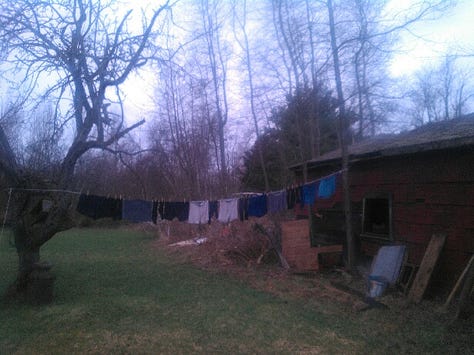
My hope is that I can deliver. As the fog of fall burns off and we enter the wintertime, I will write pieces that show the contours of the seasons in bold, highlighting the thousand faces of the North Country landscape and its people. And as I go, I will chronicle the roads on which I travel, taking you to obscure locales and on county transit buses, cris-crossing the US-Canada border and, by summertime, cataloguing outport towns in Newfoundland and Labrador as well as Quebec's Côte-du-Nord region. And on slow weeks, polemicals and pontifications on matters as diverse as the revival of rural America, traditional Catholicism, the Erie Canal, 49cc mopeds, and regionalist litanies of the northern northeast and its landscape will ensue. As my readership has doubled so rapidly, I wish to be responsive to you all — to bring you the types of pieces that you want to see most. I give you my word that if you request a particular sort of piece in the comments — I will write it this winter.
After all, the purpose of writing is not merely to convey information in its block-headed and rational form; it is to leaven the knots in the reader's heart — to lead them to another realm. This makes the sleeplike haze of late autumn important in the spirit of the northern writer; it is a period when he ought to immerse himself in the 'second realms' of wakeful dreaming and sleeping wakefulness. It is the time when his bardic vocation is plainly written across the haggard and undefinable texture of the landscape in which he has taken up residence; when access to portals is afforded to him as a gift to give and as material to shape. His patrons feed and house him, adorn him with his clothes and his boots, and send him out into the fog to remind them of some ineffable thing they have sought in another life — he must, shaman-like, wear a thousand masks and dive into the ontological fog, bringing back shiny trinkets and gifts and stanzas for his friends who so generously clad him in his wools and put fuel in his furnace. I can only hope that your investment in me does, in this regard, prove worthwhile.

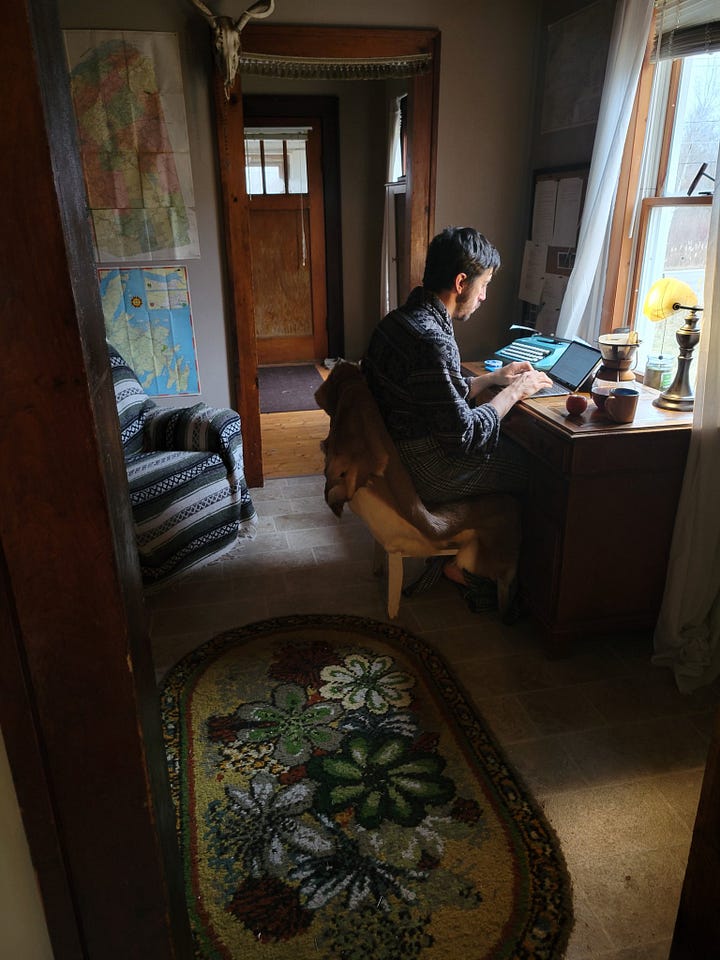
Many years ago, I found myself hitchhiking on the Pine Ridge Indian Reservation in South Dakota. I stood on in the harsh rays of the western sun, thumb extended, lithe and athletic in my movements from so many months of travel and constant walking. I was sunburned and my beard was wild. A man offered me a ride in his 1964 International pickup and as we were driving, he offered me a place to rest for the night. As I accepted, we turned down a dirt road and drove for half an hour, rattling down the plains on the washboard surface of a windy truck trail. The man, a Lakota-Sioux, was in his nineties — his name has left my memory. His place was a shanty; a single room, barely insulated, devoid of any modern conveniences. He poured me instant coffee, eyeing me silently in the way that solitary older men often do. Finally, he broke the silence, half-smiling. I wrote his words down in a journal later that night:
"You are what my people call… a heyoka. The heyoka is a clown, we would say, but more than this, he is a sacred clown. His dwelling-place is at the edge of the village; he goes between the wilderness and the people. He lives on earth, but he is not really here. If he must, he becomes a gopher and travels far. In sleep, he is a dreamer, and yet my people never disregard him, even if his dreams and his words are outlandish. He can say anything to anyone without bad consequences; he is a teacher who brings the dream-world down onto the earth."

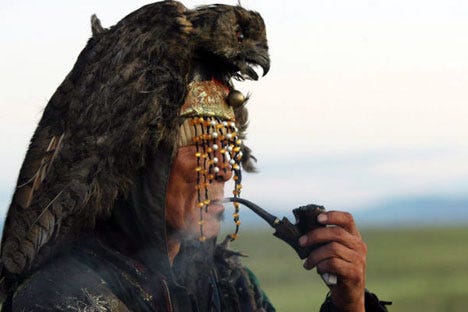
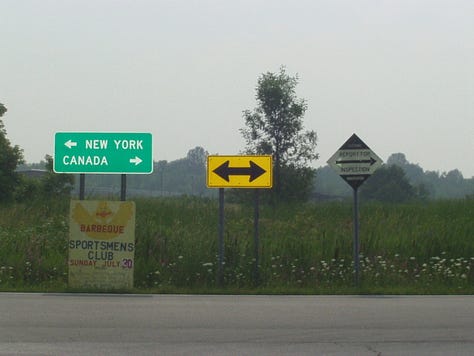
Perhaps this was the best compliment I have ever received in my life. After speaking to me for a few hours over coffee, he wordlessly spread his blankets on the floor and crawled in. Before turning over to sleep, he told me that it was customary to give a man like me his own bed. It was profoundly unnatural to me to accept this nonagenarian's wish that he sleep on the floor — and I in his bed — but I could not refuse. He simply turned over and fell dead asleep. I was stunned and overcome with profound gratitude. Quietly, I teared up as I began drifting to sleep — sleeping to enter the dream-world that it was my mantle to pass into, that I may bring some of it back to the others on earth.
Today, I feel a similar sense of gratitude. The land meets me where I'm at; offering me a waking dream, wrapped in mist and shadowed by the dark pine branches and leafless trees. In all likelihood, the next time I write here, there will be snow, and the next phase will have been entered. Until then, I pour myself a lager, stunned at my good fortune — that the vocational counsel I received from a Lakota elder who has by now probably passed on should be so readily seen and affirmed by so many of you, my readers.
I ask that you comment your wishes for my work as a writer below if you wish.
God bless you all,
A.M. Hickman




That Lakota compliment is wonderful. And I'm sure it's accurate. Keep going! I hope we meet again. Send our family's love to Keturah also.
I second the thanks for bringing our dream world down to earth!!